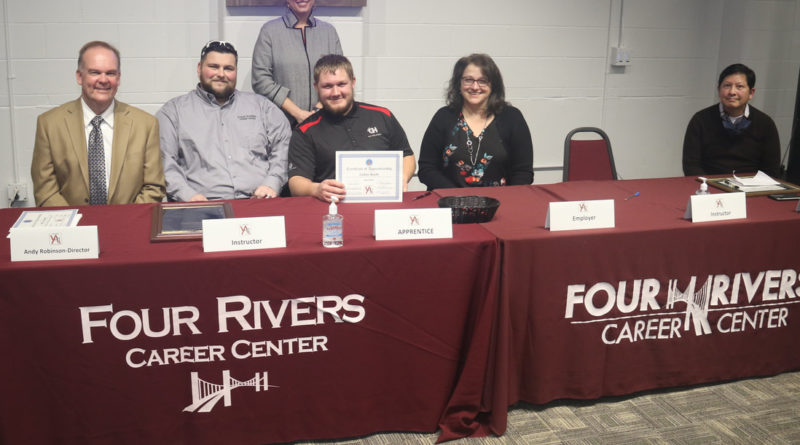$400K Four Rivers CC
The Four Rivers Career Center in Washington and 50 other work skills centers across the state are the recipients of grant dollars to the tune of hundreds of thousands each. That is $400K Four Rivers CC.
FRCC is getting $400,000, the max provided by the Missouri’s Area Career Center Opportunity (MACCO) Grant, which is funded through the federal American Rescue Plan Act. MACCO grants are aimed at modernizing the equipment and infrastructure of Missouri’s technical schools.
Four Rivers has a plan to buy new equipment for seven programs — engineering, welding, collision repair, machine tool, building trades, automotive technology and nursing.
FRCC Director Philip King said the school’s biggest grant expenditures will be made on recommendations from companies in the community. Two times a year, FRCC educators meet with industry advisory boards and discuss their curriculum.
“It’s just helpful because then they’re telling us what they see and we also get to ask ‘Is there certain things you would like our kids to be training to do?’ ” King said.
Project Lead The Way
The Project Lead The Way engineering program will be getting two new types of robotic arms. Learning on new MG400 Dobot robotic arms will contribute to the current curriculum, programming pick-and-place procedures and rotation “roll” angles, but UR5E Cobot arms will be a different addition to the engineering lab.
“Multiple local companies” such as Melton Machine & Control and Computech use the UR5E as standard technology, according to King.
“We’re going to start with our machine tool and our engineering students because they have that same classroom, but we also will buy an accessory that has a laser welding attachment,” King said. “Then, in the future, we can also get our welding program where the students are working interchangeably with a robot and what they’re doing. So, we can really start simulating the workplace.”
Welding and Collision Repair Program
Additionally, the welding and collision repair programs will both be getting more booths, allowing more students to work on projects at one time.
In their new welding booths, students will also be able to learn pulse MIG welding, a technique that requires equipment in addition to TIG machines.
Adding a second painting booth will ease a “bottleneck” in the collision repair shop, according to FRCC’s grant application.
“The double booth will allow more students to keep working and learning,” it reads.
Machine tool students will be getting new programs for their CNC machines. Twenty new “zero clients” will be purchased, updating the machine’s capabilities.
“Students will use the zero clients to draw blueprints, create models and toolpaths that will then be machined using our CNC equipment,” the grant application reads. “The zero clients will allow us to use Inventor CAD/CAM software to its full potential.”
The building trades shop will be getting a new bandsaw and repairs to its old one. For gearheads in the mechanic’s shop, four ATech electrical training boards teach students the basics of circuit theory and testing and diagnosis of bugs that simulate common problems. Three new cordless impact tools will also make for a more-organized work area.
Remaining Funds
The remaining funds, $400K Four Rivers CC, will be used to update and increase the number of laptop computers used by the nursing students.
The Warrensburg Area Career Center and the Rolla Technical Institute/Center were also selected to receive $400,000. As part of the deal for the grants, the schools must match some of the funds, $133,333, which must be spent by 2026.
In allocating the federal funds, King said Gov. Mike Parson is “putting his money where his mouth is” in support of technical jobs after years of focusing on Missouri’s economy.
“We’ve been really lucky because Gov. Parson is very pro-career and technical education,” King said. “He is really working on getting the Missouri workforce up, so we can keep our industry footprint going. He’s really put a lot of time and resources and legislation in that’s been helping get our future students ready to be tomorrow’s workforce.”

